Course Union Organisers’ Handbook [download] (1973) produced by the Ontario Federation of Students
Advice on producing pamphlets: “Don’t write an essay”.
This handbook is a methodical guide from the early 1970s to organizing course unions – committees formed by students on the basis of their academic courses (i.e. Political Science, History, Chemistry) to take action on the quality of education and their lack of involvement in decision-making. Activities include holding regular general meetings, appointing class representatives, organizing course evaluations, alternative educational events, and social events. They also develop demands and apply pressure for their adoption through a combination of public activism and lobbying.
Even though the approach of the handbook is a little too prescriptive for my liking, the framework definitely resonated with my own experiences with student organizing. The section on mass actions also reminded me of how some of my thinking has evolved over time.
“As a last resort, mass actions can be an effective weapon against an unyielding department or university.”
This view of mass or direct action as a “last resort” is rooted in a reformist approach of making small changes while leaving the overall system intact. It has to be proven (often each time, so ahistorically) that the token measures made available for participation don’t work. Administrators must be shown to be unresponsive and undemocratic. The possibility of goodwill must extinguished, often through betrayal. There are even pessimists who advise going through the motions of each step in order to provide political cover, or a more broadly acceptable rationale, for taking direct action that disrupts day to day business and gets to the heart of the matter.
It reminds me of a joyous scene in The Trotsky (2009) where Jay Baruchel’s character, Leon Bronstein, who believes that he is the reincarnation of Leon Trotsky, goes to the school board as part of his campaign to unionize his high school. Some of his companions are dejected when the school board delivers a negative opinion, but Bronstein is unaffected. I can’t remember the exact quote, but he basically says, we only asked you as a formality, so that we can now begin to rain hellfire down upon you!
In a totally different approach, the folks who organized a Free UofT were not trying to lobby anyone to make reforms, they were actively producing their own vision of free and accessible education, and invited everyone to join them. So in this case, direct action was not a last resort, but desirable and a necessity.
“RTS does not see Direct Action as a last resort, but a preferred way of doing things … a way for individuals to take control of their own lives and environments … If global capitalism does not manage to destroy the ecosphere and human civilization … and a new culture of social and ecological justice is developed, RTS would hope that direct action would not stop but continue to be a central part of a direct democratic system.” (Jordan 1997)
Strength in numbers little fish vs. big fish graphic
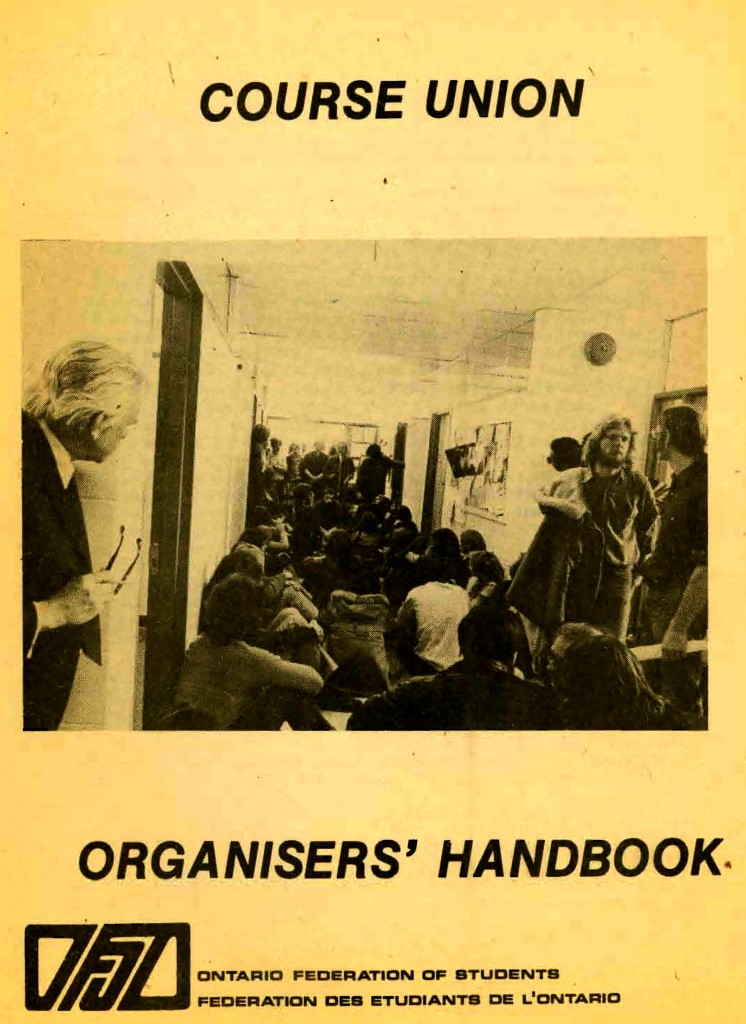
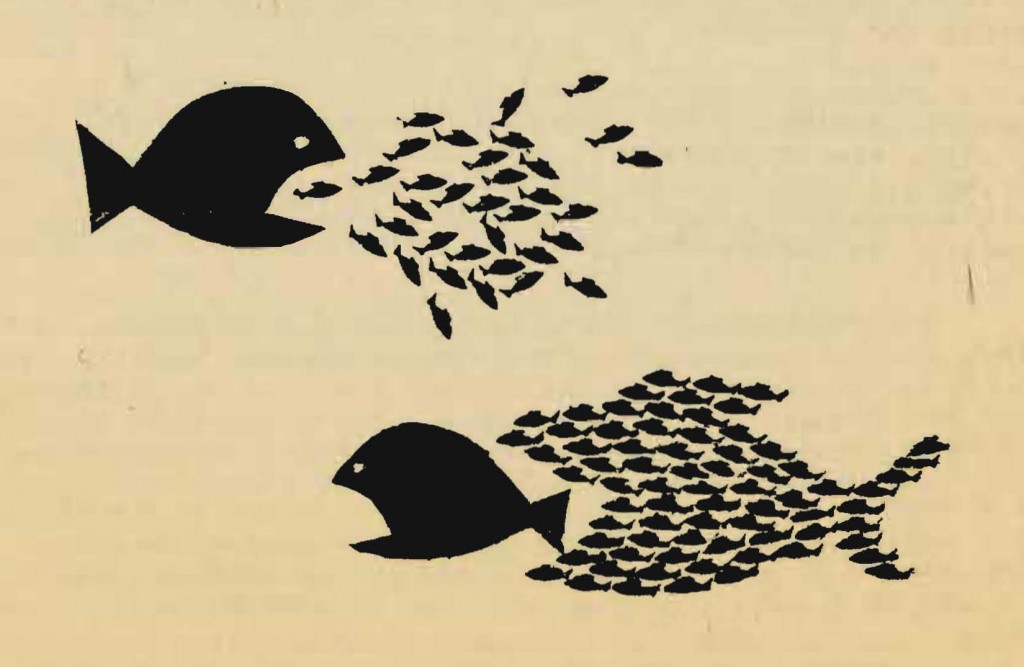

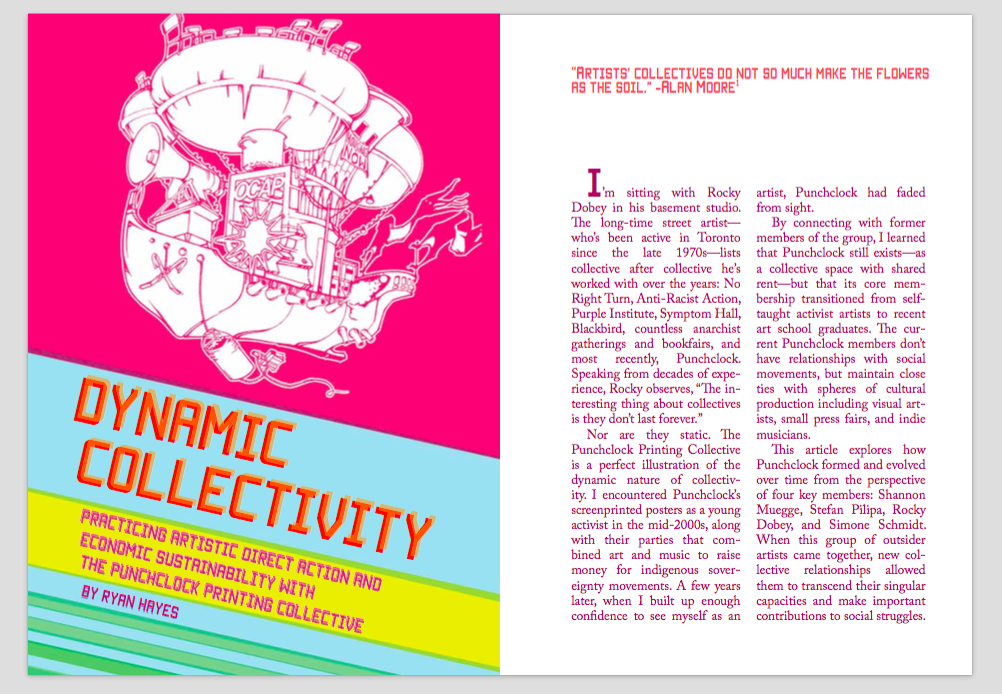
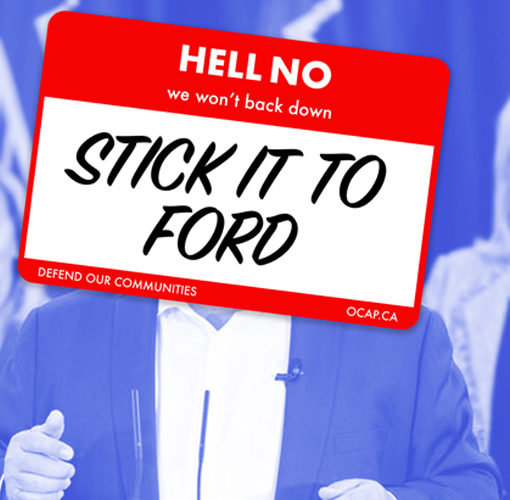
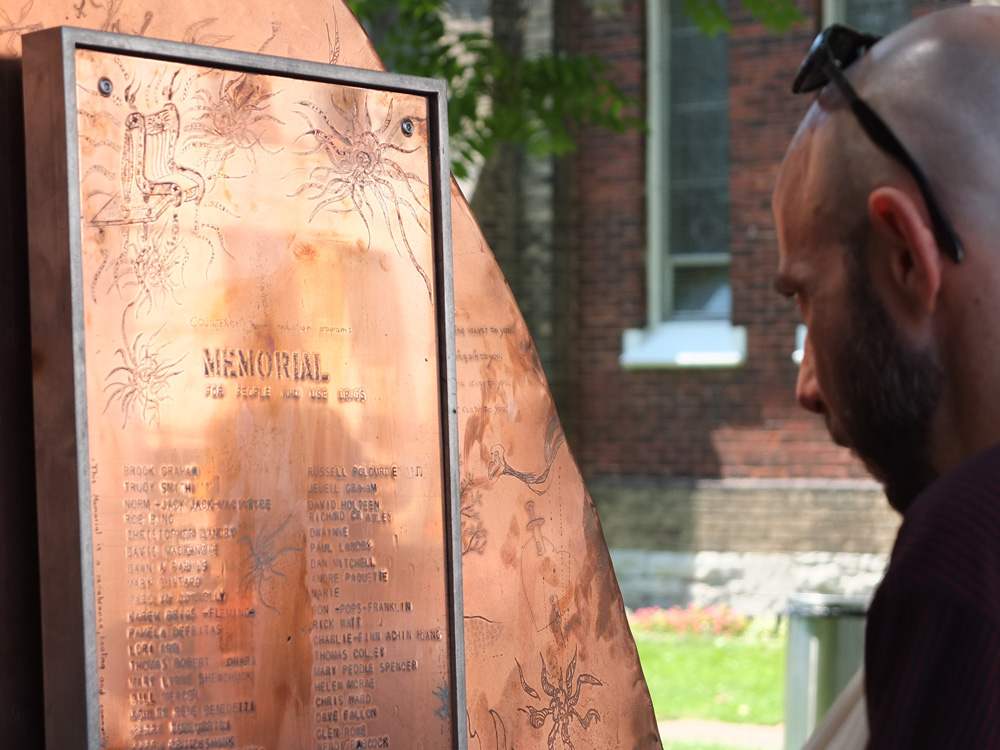
One thought on “Direct Action”